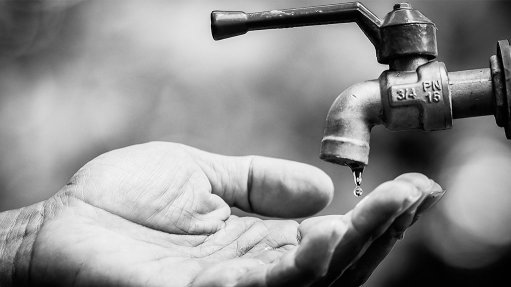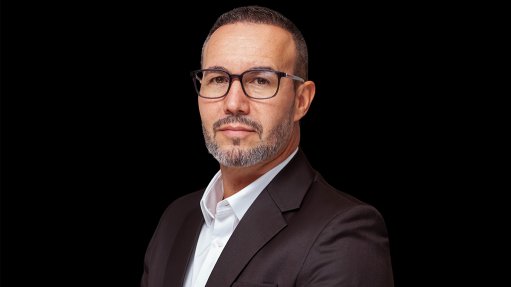Angola – taking on the oligarch-kleptocrats
As Angola, under the leadership of only its second President in about four decades, takes on the oligarch-kleptocrats and implements meaningful reforms, investors start to notice, but is it too late to woo voters?
Rio Tinto’s signing in early October of a diamond mining investment contract for Angola’s major Chiri kimberlite concession, in Lunda Sul, is a vote of confidence in the political and economic stewardship of President João Lourenço. It marks the return of the first major mining company to Angola after a small clique of politicians and former military barons connected to former President Jose Eduardo dos Santos took control of every sector of the economy. Year after year, mining majors reviewed the country’s prospects but corruption, nepotism and regulatory uncertainty chased them away, costing the country billions in missed investment.
All that has changed. Lourenço has since 2017 pursued a political, economic and anticorruption reform programme that has seen the MPLA liberation movement turned ruling party turn its back on the ideological policies it had followed since 1974. Lourenço has continued reforming despite Covid-19’s economic shock and consequent oil price crash for Africa’s third-largest oil producer. Unlike other leaders who have used the pandemic to extend executive powers, Lourenço has continued to push political reforms that will reduce his own considerable executive powers and improve future oversight of the Presidency. Electoral reforms extend voting rights to Angolans abroad and revise the electoral roll. Despite Covid-19, Lourenço has ruled out postponing general elections scheduled for 2022 and insists that delayed local government elections will also take place for the first time.
Cautious Optimism on Fiscal Sustainability
Lourenço’s economic reforms have been the most far-reaching. He abandoned the MPLA’s nominally Marxist ideology (a fictional cover for one of Africa’s worst oligarchy-kleptocracies) for a classic liberalisation programme. Arguably, he had no choice, as an empty Treasury when he took office in 2017 meant he had to embrace the International Monetary Fund (IMF). However, IMF reforms have chimed with Lourenço’s political reforms. A privatisation programme put government’s stake in 195 companies up for sale and a new financial law will institutionalise the independence of the central bank, the Banco Nacional de Angola (BNA). For the first time, the BNA will be administratively independent, with its regulatory powers separate from the President and the administration. In future, Parliament – not the President – will appoint the governor. As the IMF programme, which began in 2018, draws to a close, Angola is now fiscally stable, a remarkable feat, given the pandemic crisis, albeit aided by recent improvements in oil prices. Finance Minister Vera Daves anticipates that improved oil revenues will ensure there will be no Budget deficit by the end of 2021 and borrowings will be within the country’s means. Ratings agencies are starting to notice; Moody’s in September cited stronger governance when it increased Angola’s sovereign rating from Caa1 to B3 (from substantial risk to speculative noninvestment) – the first rating improvement since its initial valuation in 2015.
Anticorruption Successes
One of Lourenço’s most significant successes has been the battle against corruption, with the cooperation of the German, Dutch and now United Arab Emirates (UAE) authorities. Admittedly, the anticorruption task was made easier with the Dos Santos family and close associates providing a glaring and ready starting point for investigation. Most recently, Angola signed a treaty with the UAE – important in itself, as it involves a major investment programme, but also because, since February, the UAE has started implementing new antimoney laundering rules. At the request of Angola’s Procurador Geral (attorney general), the UAE agreed to freeze bank accounts of the Dos Santos family and people connected to it. Dos Santos’ daughter, Isabel dos Santos, has been resident in Dubai since about late 2019. The UAE’s Central Financial Intelligence Unit contacted financial institutions likely to hold accounts of Isabel dos Santos, her late husband, Sindika Dokolo, and a Franco-Congolese business associate, Konema Mwenenge, CEO of Dubai-based diamond company Nemesis International, which belongs to Isabel dos Santos and Dokolo. In June, a Dutch judicial administrator nullified Isabel dos Santos’ interests in a joint venture with Angola’s State-owned oil company, Sonangol, having found them to be “part of a money laundering scheme to embezzle funds”. Meanwhile, the German courts have fined Germany’s State-owned KfW-Ipex-Bank €150 000 ($178 000) for antimoney-laundering infringements in facilitating loans to an Angolan brewery linked to Isabel dos Santos.
The continued pressure on the Dos Santos family is one of the reasons given for the return of ex-President Jose Eduardo dos Santos to Angola from self-imposed exile in Spain. Although his return was reportedly to attend the engagement of his son, José Avelino Gourgel dos Santos, there is widespread speculation that he returned to seek a settlement around his family’s business assets and to play a role in the return of assets stolen by other key MPLA players who are resisting handing back assets, in order to hand Lourenço success ahead of elections in 2022.
Notwithstanding Lourenço’s reforms, popular weariness of the MPLA has increased. This, and a rejuvenated opposition now in coalition, could for the first time present a credible threat to the MPLA and Lourenço’s Presidency. Although Jose Eduardo dos Santos is not likely to participate in the eighth congress of the MPLA from December 9 to 11, he is expected to negotiate a truce with the MPLA “old guard”, to bring it behind Lourenço and prevent a possible electoral defeat. What a great irony it would be if, having turned the Titanic away from disaster and set course for a safe harbour, Lourenço were to lose control of the ship in 2022.
Article Enquiry
Email Article
Save Article
Feedback
To advertise email advertising@creamermedia.co.za or click here
Announcements
What's On
Subscribe to improve your user experience...
Option 1 (equivalent of R125 a month):
Receive a weekly copy of Creamer Media's Engineering News & Mining Weekly magazine
(print copy for those in South Africa and e-magazine for those outside of South Africa)
Receive daily email newsletters
Access to full search results
Access archive of magazine back copies
Access to Projects in Progress
Access to ONE Research Report of your choice in PDF format
Option 2 (equivalent of R375 a month):
All benefits from Option 1
PLUS
Access to Creamer Media's Research Channel Africa for ALL Research Reports, in PDF format, on various industrial and mining sectors
including Electricity; Water; Energy Transition; Hydrogen; Roads, Rail and Ports; Coal; Gold; Platinum; Battery Metals; etc.
Already a subscriber?
Forgotten your password?
Receive weekly copy of Creamer Media's Engineering News & Mining Weekly magazine (print copy for those in South Africa and e-magazine for those outside of South Africa)
➕
Recieve daily email newsletters
➕
Access to full search results
➕
Access archive of magazine back copies
➕
Access to Projects in Progress
➕
Access to ONE Research Report of your choice in PDF format
RESEARCH CHANNEL AFRICA
R4500 (equivalent of R375 a month)
SUBSCRIBEAll benefits from Option 1
➕
Access to Creamer Media's Research Channel Africa for ALL Research Reports on various industrial and mining sectors, in PDF format, including on:
Electricity
➕
Water
➕
Energy Transition
➕
Hydrogen
➕
Roads, Rail and Ports
➕
Coal
➕
Gold
➕
Platinum
➕
Battery Metals
➕
etc.
Receive all benefits from Option 1 or Option 2 delivered to numerous people at your company
➕
Multiple User names and Passwords for simultaneous log-ins
➕
Intranet integration access to all in your organisation


















